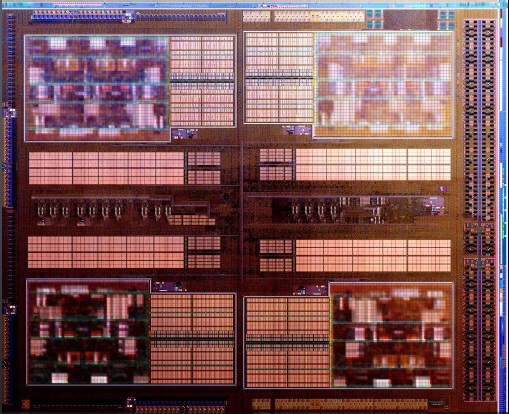AMD Says That CPU Core Race Can't Last Forever
128 cores? Sadly, no.
Get Tom's Hardware's best news and in-depth reviews, straight to your inbox.
You are now subscribed
Your newsletter sign-up was successful
It wasn't too many CPU generations ago that the main focus of performance was clock speed. The public perception was that the more megahertz (or gigahertz), the better.
Now, the current competitive number appears to be in the number of cores inside a processor. Donald Newell, AMD's chief technology officer for servers, believes that this sort of race to an even greater number of cores cannot continue.
Interestingly enough, Newell knows all about the numbers game as he previously spent 16 years at Intel, during which time there was the very clock-happy Pentium 4 generation.
"We thought we were going to build a 10GHz chip. It was only when we discovered that they would get so hot it would melt through the Earth, that we decided not to do that," Newell said, jokingly, in an interview with IDG.
Now it's about who has more cores, but Newell doesn't see that continuing indefinitely.
"There will come an end to the core-count wars. I won't put an exact date on it, but I don't myself expect to see 128 cores on a full-sized server die by the end of this decade," said Newell. "It is not unrealistic from a technology road map, but from a deployment road map, the power constraints that people expect [servers] to live in."
While we haven't seen the end of core count growth, the next big competitive ground could be integrating specialized functions into the processor.
Get Tom's Hardware's best news and in-depth reviews, straight to your inbox.
"There is nothing to prevent us to put specific features on die that enable more efficient processing," Newell said. "So you should expect to see heterogenous architectures to emerge where we identify functions that are broadly useful but don't necessarily map into an instruction that you'd want to add directly into the x86 architecture."
Both AMD and Intel are integrating graphics components into their processors, but AMD's Fusion solution promises to be the more capable offering with greater power available for GPGPU functions.
Source: IDG.
-
sinsear I dunno, but I always thought that this was kinda obvious....Reply
As they say, "All good things must come to an end". -
N.Broekhuijsen aww.... and I was looking forward to the years when the general population no longer knew the term Ghz, but cores instead.Reply
"My PC has 512 Core Clusters!" :P
Not surprising in the end though
-
he maybe right. quantum mechanics processor is in the future. let say who can make it out for the public. amd or intel. you never know. by the time when you look back probably everything you have now is all junk. always happy to see new technology for better tomorrow.Reply
-
Gin Fushicho So finally going eliminate old instructions that are not used? I'd love to see them get more efficient, programmers do not program for multiple cores it seems, or at least very few do.Reply -
Stardude82 Or maybe the technology will just hit a wall. For instance, passenger jets don't travel faster today than they did 50 years ago despite years of development. A lot of technologies just didn't work out like supersonic flight and right now huge efforts have to be made for incremental improvements in efficiency.Reply -
peterkidd So what is next? As Donald states, architecture, but is that all? The finality of current computer tech has always been stated to end. Every decade the tech community estimates the fall of Moore's law, and yet it continues to flourish. A new technology will take the old's place, but only when current technology is sufficiently exhausted. Think vaccuum tubes --> transistors --> microcontrollers. The evolution of technology will never be stagnant. It hasn't in the past, and why would it be now.Reply -
dragoon190 Reply9250613 said:Or maybe the technology will just hit a wall. For instance, passenger jets don't travel faster today than they did 50 years ago despite years of development. A lot of technologies just didn't work out like supersonic flight and right now huge efforts have to be made for incremental improvements in efficiency.
/Off topic
The reason why passenger jets don't travel any faster now is because they would go (locally) supersonic if they fly any faster, and that would cause all sorts of noise and regulation problem (think Concord and how it's only allowed to fly over the ocean).
/endOffTopic
Anyway, I don't really see the CPUs going to 128 cores when the majority of the programs nowadays barely even utilize more than 2 cores. -
sudeshc Its time for software industry to mature and make changes to utilize the multi-core environment to full, then only we can imagine on increasing the cores otherwise there is not much use of those big no. of cores.Reply
and from this point it seems like decades for this to happen.

